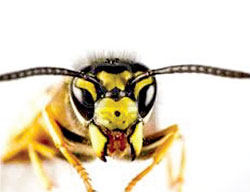News around the world
Tablet-addicted kids losing basic skills
The Association of Teachers and Lecturers are worried that young
children are becoming "addicted" to technology and are losing their
ability to perform simple tasks as they use tablets and smart phones
more and more. Most children at the age of three or four are familiar
with swiping the screen of a phone or tablet but haven't yet mastered
using their fingers for tasks like building a tower out of blocks.

The Association also warned that older children were unable to do
simple writing tests because they were too used to tapping screens to
write out letters. "I have spoken to a number of nursery teachers who
have concerns over the increasing numbers of young pupils who can swipe
a screen but have little or no manipulative skills to play with building
blocks or the like, or the pupils who cannot socialize with other pupils
but whose parents talk proudly of their ability to use a tablet or
smartphone," said Colin Kinney, a teacher from Northern Ireland at the
Association of Teachers and Lecturers' annual conference.
Instead of playing with other children on weekends and after school,
kids are choosing to stay indoors and quietly play on a tablet.
If children do not learn to socialize at a young age it can become
much harder for them to learn how to make friends as they get older.
Kinney's fellow teachers "talk of pupils who come into their classrooms
after spending most of the previous night playing computer games and
whose attention span is so limited that they may as well not be there."
How will a a child who could grow up to be a very good artist be able
to succeed if they do not learn how to use a paintbrush and develop
their painting skills? How will a child with the potential to be a
brilliant inventor succeed if they have a short attention span and do
not learn to be patient? While it is certainly necessary to know how to
use technology in today's world, it is still very important for children
to have basic social and physical skills to draw on as they get older.
"In the same way we can use a brick to either break a window or build
a house, digital technology can be used for good or bad, and teachers
can and should help their pupils make positive choices so they have
positive experiences." What is your favourite technology-free activity
to do?
Wasp species named after Harry Potter villain
A public vote at The Museum of Natural History in Berlin has resulted
in a new species of wasp being named after a Harry Potter character! The
museum put up four names for visitors to vote on in the hopes of getting
the public more involved and interested in the biodiversity and
discovery of new species of animals. Those names were: Ampulex bicolour
- "bi" is the latin word for two, and when put before the word colour it
means two colours. This wasp has a unique red-black colouring.
 Ampulex
mon - the Mon people were one of the earliest ethnic groups in Thailand,
where this species of wasp originated. Ampulex
mon - the Mon people were one of the earliest ethnic groups in Thailand,
where this species of wasp originated.
Ampulex dementor - this name refers to the Dementors in the Harry
Potter novels and movies. Just like Dementors, this wasp leaves its prey
(usually cockroaches) paralyzed and empty. It is also just as scary
looking as a Dementor!
Ampulex plagiator - this species looks and moves very much like an
ant, hence the name plagiator, which sounds like the word plagiarism. If
you haven't figured out which name won yet, it was Ampulex dementor! The
Ampulex dementor seeks out an unsuspecting cockroach and stings it in
the head, injecting a deadly dose of neurotoxins that make it helpless
against the wasp.
"After bring stung by the wasp, specific behaviours of the cockroach
are inhibited (e.g. escape behaviour) while others are unaffected (e.g.
locomotion,) " the research team behind the wasp's discovery wrote in
their paper. "The wasp grabs the partly paralyzed cockroach by one of
the antennae and guides it to a suitable location, the prey following in
a docile manner.
This is a unique strategy of behavioural modulation of a prey by a
wasp's sting." The wasp takes the now zombie-like cockroach to its
burrow and lays its eggs inside of it.
Ampulex dementor is one of the 200 known wasp species that can't host
their own eggs inside their bodies. To reproduce, they give a cockroach
the job of hosting the eggs for a few days until they hatch. |

